
Answer:
While eating foods with higher amounts of antioxidants may be beneficial for lowering the risk of certain chronic diseases, there is very little evidence that consuming antioxidants in the form of a supplement has significant clinical benefit — with the exception of providing needed vitamins and minerals when one is deficient in them. Furthermore, while higher intake of antioxidants from food is generally safe and, in some cases, essential for good health, high intake of antioxidants from supplements has been linked to adverse effects, as explained in detail below.
What are antioxidants?
The term "antioxidant" describes foods or supplements that reduce oxidative stress — cellular damage caused by free radicals that can lead to cell death. Antioxidant compounds include certain vitamins — such as beta-carotene and vitamins A, C, and E — as well as compounds such as zinc, selenium, coenzyme Q10, astaxanthin, lutein and zeaxanthin, lycopene, curcumin, and resveratrol. Branded supplements, such as Protandim, are also promoted for their antioxidant effects.
What do antioxidants do?
Oxidative stress has been associated with conditions such as cardiovascular disease, Alzheimer's disease, multiple sclerosis (MS), Parkinson's disease and cancer, and is also believed to play a role in aging. It is thought that by reducing oxidative stress, antioxidants may reduce the risk of these conditions. However, although there is evidence that people who consume foods with higher amounts of antioxidants may have lower risks of some of these conditions, there is very little evidence that consuming antioxidants in the form of a supplement (other than needed vitamins or minerals) has significant clinical benefit for preventing chronic diseases.
Furthermore, while higher intake of antioxidants from food is generally safe, high intake of antioxidants from supplements has been linked to adverse events (see below).
What are the potential benefits of antioxidants?
Astaxanthin
Astaxanthin supplements are promoted for increasing physical endurance, reducing wrinkles, protecting from sunburn, and lowering triglyceride levels, although the evidence supporting these uses is mixed (see our Astaxanthin Supplements Review for details).
Coenzyme Q10
Supplementation with CoQ10 long-term may be beneficial in people with congestive heart failure, but evidence that it's helpful for diastolic heart failure is mixed. CoQ10 may slightly lower cholesterol levels in people who are not taking a statin medication, but it doesn't seem to be beneficial for lowering cholesterol in people already on statins. CoQ10 does not seem to help lower blood pressure by a clinically meaningful amount, nor does it seem to help delay the progression of Alzheimer's disease. See our CoQ10 and Ubiquinol Supplements Review for more details.
Curcumin
Much of the research regarding curcumin has been based on its anti-inflammatory effects. However, there has been some interest in curcumin as a neuroprotective agent for Parkinson's disease and for reducing the growth of cancer based on its antioxidant effects. Although several test tube and animal studies have shown benefit for these conditions, supporting evidence in humans is lacking.
Lutein and zeaxanthin
Lutein and zeaxanthin are antioxidant pigments naturally found in the macula of the eye (in the retina). These pigments are thought to protect the eye from free radicals. Many people don't consume enough lutein and zeaxanthin in their diets and/or have low levels of lutein in their blood or low macular pigment density. For these individuals, taking a lutein supplement may slow the progression of age-related macular degeneration (although it won't improve this condition). Taking lutein and zeaxanthin may also reduce the risk of needing cataract surgery – but, again, only among those not getting enough of these nutrients from their diet. There is preliminary evidence that lutein and zeaxanthin may also improve some aspects of brain function, reduce psychological stress, protect the skin from sun damage, and reduce headaches and eye strain due to prolonged periods of time in from of a computer, phone or tablet screen (see our Vision Supplements Review for details).
Lycopene
Higher intakes of lycopene-rich foods, such as tomatoes, may reduce the risk of certain types of cancer. Although some preliminary evidence has suggested that lycopene supplements might also reduce the risk and/or slow the progression of certain cancers, this has not been proven and, when asked to consider allowing a cancer-reduction health claim for lycopene products, the FDA concluded in 2004 that there was "no credible evidence" that lycopene supplementation is linked with reduced cancer risk. Still, there is preliminary evidence that lycopene in foods or supplements may help lower high blood pressure, slightly lower cholesterol, and help protect the skin from UV light damage (see our Lycopene Supplements Review for details).
Selenium
While selenium deficiency has been linked with an increased risk of cancer, selenium deficiency is uncommon in the U.S., and it is not clear whether additional selenium is helpful for preventing cancer in people who already get enough from the diet. Similarly, low levels of selenium have been linked with development of rheumatoid arthritis (RA), but selenium supplementation does not appear to improve RA symptoms. Selenium supplements also do not appear to help reduce the risk of dementia or prevent heart disease (see our Selenium Supplements Review for details).
Vitamin A and Beta-Carotene
Population research has linked higher dietary intake of beta-carotene with reduced risk of breast cancer and ovarian cancer. However, experts generally advise against the use of beta-carotene supplements for preventing cancer or cardiovascular disease, as the risks outweigh the potential benefits (see Concerns and Cautions for details).
Vitamin C
In people who already get enough vitamin C from their diet, taking a supplement will generally not be helpful for most conditions. For instance, while taking vitamin C may slightly reduce elevated blood pressure, it won't reduce rates of cardiovascular disease. Also, while high-dose vitamin C might reduce the risk of getting a cold from high stress activity, it won't help treat a cold in someone who is already sick. Despite this, high-dose vitamin C as part of the AREDS formula (which also includes vitamin E and beta-carotene plus zinc and copper) has been shown to reduce the progression of age-related macular degeneration. For more details about the effects of vitamin C, see our Vitamin C Supplements Review. And for more information about the AREDS formula, see our Vision Supplements Review.
Vitamin E
High-dose vitamin E supplementation may modestly help some people with Alzheimer's disease, but lower doses don't seem to help (see our Vitamin E Supplements Review for details). Although long touted for preventing heart disease, most clinical studies have not found vitamin E supplementation to be beneficial and some research suggests that it may reduce the effectiveness of certain cholesterol-lowering agents. Similarly, although once thought to be beneficial for preventing several types of cancer, experts now believe that, among healthy adults, there is no net benefit of vitamin E supplementation for the prevention of cancer. In fact, high-dose vitamin E has been shown to increase the risk of prostate cancer.
Zinc
Zinc is an essential mineral, and it is important to get adequate amounts from the diet to avoid symptoms of zinc deficiency including impaired immune function, diarrhea, and hair loss. Supplementing with zinc can also help prevent or treat zinc deficiency, and zinc, alone or with other antioxidants, can slow the progression of advanced age-related macular degeneration (AMD). However, there is insufficient evidence to support the use of zinc for other chronic conditions for which it is sometimes recommended, such as cataracts, rheumatoid arthritis, benign prostatic hyperplasia (BPH), and osteoporosis.
When are antioxidants bad for you?
Antioxidant supplements can sometimes cause adverse effects, as discussed below.
Blunting benefit of exercise training
As noted in our Resveratrol Supplements Review, two studies have shown that resveratrol supplementation may blunt or interfere with some benefits of exercise, such as improvements in peak aerobic power and maximal oxygen uptake. Researchers have speculated that resveratrol may block the effects of reactive oxygen species, which are normally generated during exercise and trigger some of the positive changes resulting from exercise. Similarly, some, but not all, research has found that giving high-dose vitamin C and/or vitamin E to people involved in intensive exercise training may blunt cellular changes thought to be important for improving muscular endurance.
Increased mortality
A review of many clinical studies found that about 3% to 10% more people died with the use of supplements containing beta-carotene, vitamin E, and high doses of vitamin A compared to placebo. This increase in deaths was not associated with the use of vitamin C or selenium but another study found that people with the highest levels of vitamin C in their blood (60 mcmol/L or greater) had a greater risk of death compared to people with lower levels and there are other concerns with selenium supplementation).
Keep in mind that much of this research is based on getting nutrients from supplements, so you should not worry about getting these nutrients from foods, such as fruits and vegetables. Vitamin A and vitamin E are essential nutrients, and beta-carotene is converted into vitamin A as needed. In addition, the research did not assess the supplements for the prevention or treatment of specific diseases or nutrient deficiencies. Although deficiencies of these nutrients are uncommon in the U.S. and Canada, they occur elsewhere and can be effectively treated with supplements.
Reducing effectiveness of chemotherapy
Certain anticancer therapies work by producing reactive oxygen species to kill cancer cells. By blocking the effects of reactive oxygen species, there is concern that antioxidants may reduce the effectiveness of chemotherapy agents. At least two studies among women with breast cancer found that those who used antioxidant supplements (vitamins A, C or E, carotenoids or CoQ10) during chemotherapy or radiation had a higher risk of dying and lower chance of surviving without recurrence compared to those who didn't use antioxidants. The American Cancer Society advises that cancer patients undergoing treatment avoid taking high doses of antioxidant supplements (American Cancer Society 2013).
Why do effects of antioxidant foods & supplements differ?
There are several reasons why the effects of antioxidant foods and supplements may differ. Antioxidant-containing foods may contain other substances, such as fiber, that contribute to their health benefits. These other substances would be lacking from isolated antioxidants found in supplements. Also, supplements often contain larger doses of antioxidants compared to foods, which may cause harm, as discussed above. In addition, the forms of the antioxidants in foods and supplements may differ. For instance, vitamin E can be found in eight different chemical forms in foods. Vitamin E supplements, on the other hand, often contain only the alpha-tocopherol form. Even among "natural" vitamin E products that claim to contain a mix of tocopherols (which might be beneficial), ConsumerLab has found that some do not contain a significant amount of the additional tocopherols.
The Bottom Line:
While antioxidant foods have been linked with a lower risk of several diseases including cancer and heart disease, antioxidant supplements, in general, don't seem to help prevent chronic diseases — although, as noted above, certain antioxidant formulations may be helpful for conditions such as age-related macular degeneration. In some cases, and especially at high doses, antioxidant supplements may be harmful. Unless you're taking antioxidants to treat a nutrient deficiency or a specific condition for which the antioxidant has shown benefit, it may be prudent to avoid taking high-dose antioxidant supplements.
Join today to unlock all member benefits including full access to all CL Answers and over 1,400 reviews.
Join NowAlready a member? Sign In Here.
Join now at www.consumerlab.com/join/



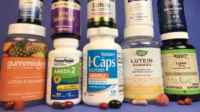
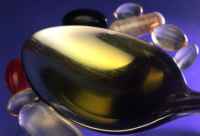
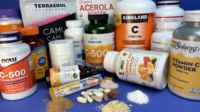
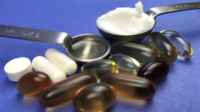
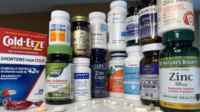









Submit your comment
This feature is restricted to active members.
Join now to add comments and get all member benefits, including over 1,400 reviews.
Join NowAlready a member? Sign in here.